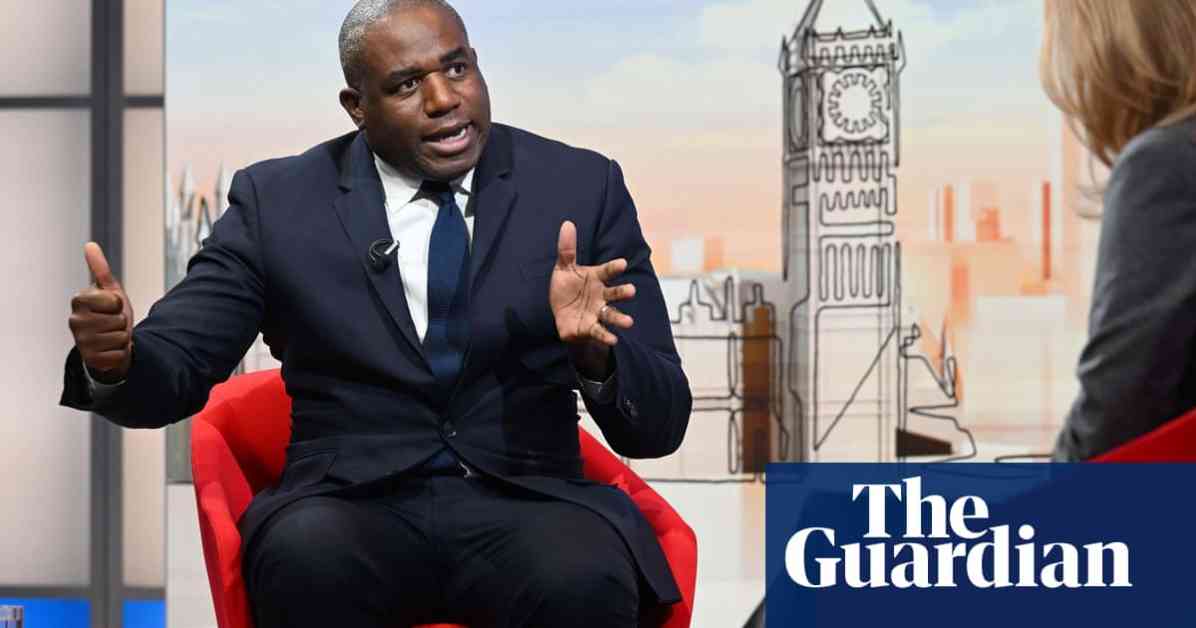Political Leaders and Donors: A Complex Relationship
The relationship between political leaders and donors has always been a complex and often controversial one. In a recent row over the late declaration of funds for a personal shopper and clothes for Keir Starmer’s wife, Victoria, the foreign secretary, David Lammy, shed light on the role that donors play in enhancing the image and influence of political leaders.
According to reports by the Sunday Times, Labour donor Waheed Alli paid for clothing for Victoria Starmer, which was not initially declared in the register of MPs’ interests. The gift was registered late, after Starmer sought advice and approached parliamentary authorities. In an interview with the BBC, Lammy defended the donations, stating that they were accepted so that the Labour leader and his wife could “look their best.”
Lammy compared the situation to that in the United States, where US presidents and first ladies have a significant budget paid for by taxpayers to ensure they look their best on behalf of the American people. While the US president receives a salary and expense allowance, there is no specific clothing budget for presidents or their spouses. Lammy highlighted the lack of such a system in the UK, where political leaders often rely on donations to present themselves in the best light.
Transparency and Compliance in Political Funding
The issue of transparency and compliance with rules regarding political funding has come under scrutiny in light of the controversy surrounding the Starmers’ links with Lord Alli. Despite calls for a full investigation by the Tories, Lammy defended Starmer’s actions, stating that the prime minister had declared funds received from Lord Alli and had sought further clarification on the details of those funds.
Lammy emphasized that Starmer’s efforts to comply with the rules demonstrated transparency in his dealings. He pointed out that political leaders, unless they are billionaires, rely on donations to present themselves and their partners in the best possible light. While he clarified that he was not suggesting the prime minister was in financial need, Lammy underscored the importance of political leaders wanting to look their best for the country.
The donations reportedly covered the cost of a personal shopper, clothes, and alterations for Lady Starmer before and after Labour’s election win. MPs are required to register gifts and donations within 28 days, and any delays in doing so can raise questions about transparency and compliance with parliamentary rules.
The Controversy Surrounding Lord Alli’s Involvement
Lord Alli’s involvement with Keir Starmer has already sparked controversy, particularly after it was revealed that he had been given a Downing Street security pass without having a government role. The “passes for glasses” scandal, named as such because Alli had donated funds for clothing, accommodation, and spectacles for the Labour leader, raised concerns about potential conflicts of interest and breaches of parliamentary rules.
The Conservative party has called for a full investigation into the scandal, accusing Starmer of facing allegations of cronyism and serious breaches of parliamentary rules within just 10 weeks of taking office. The issue has reignited debates about the influence of donors on political leaders and the need for transparency and accountability in political funding.
In conclusion, the relationship between political leaders and donors remains a complex and contentious issue in the world of politics. While donations can play a crucial role in enhancing the image and influence of political leaders, they also raise questions about transparency, compliance with rules, and potential conflicts of interest. As the controversy surrounding the Starmers’ links with Lord Alli continues to unfold, it serves as a reminder of the challenges and responsibilities that come with political leadership.












